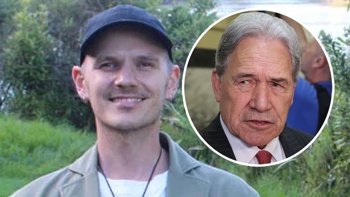
More than half of the survivors of the 2019 Christchurch mosque terrorist attacks have suffered long-term mental health effects in the aftermath, a new study has found.
A University of Otago, Christchurch study found more than 60% of participants from the Christchurch Muslim community suffered from mental health conditions such as PTSD and depression in the wake of the attacks.
At least 250 survivors were present in the mosques, 51 people were killed and another 40 sustained non-fatal gunshot injuries, when a white supremacist gunman opened fire during Friday juma’a (congregational) prayers on March 15, 2019.
 Thousands of flowers and messages of support were left in tribute to the Christchurch mosque terror attack victims. Photo / Alan Gibson
Thousands of flowers and messages of support were left in tribute to the Christchurch mosque terror attack victims. Photo / Alan Gibson
The terrorist livestreamed the attacks, resulting in repeated and widespread exposure to the horrific events for much of the Muslim community.
The project, funded by the Health Research Council of New Zealand and the Canterbury Medical Research Foundation, was co-designed with Muslim researchers and involved active community engagement and collaboration with local Muslims as well as a Muslim Reference Group.
The study, published in the Australian and New Zealand Journal of Psychiatry, is the first phase of a proposed longitudinal study examining mental health effects for 189 terror attack survivors, bereaved family members, and the wider Muslim community.
This report canvases outcomes in the initial 11-32 months after the attack on two city mosques.
 Megan Lovelady at the Al Noor Mosque, Christchurch.
Megan Lovelady at the Al Noor Mosque, Christchurch.
It is believed to be the first international study to examine mental outcomes after a terrorist attack targeting a Muslim population in a non-Muslim context.
Lead author, Dr Ruqayya Sulaiman-Hill, from the campus’s Department of Psychological Medicine, says the attacks left a trail of physical and psychological devastation in their wake, shattering the peaceful local Muslim community.
“The scale and violence of this act of terrorism was unprecedented in modern Aotearoa New Zealand, causing not only immediate, but as we have found, long-term and significant mental health harm,” Sulaiman-Hill says.
Of the 189 participants in the study, 17% lost family in the attacks; 12% were injured survivors; 19% were non-injured survivors; 35% were family members of a survivor; and 35% were participants from the wider Christchurch Muslim community.
 Al Noor Mosque in Christchurch. Photo / George Heard
Al Noor Mosque in Christchurch. Photo / George Heard
The sample ranged in age from 19 to 74 years, with 60% of participants female.
The findings show a high prevalence of mental health conditions with 61% suffering an anxiety disorder, major depressive disorder (MDD), or post-traumatic stress disorder (PTSD) at some time following the attacks.
In total, 31% were diagnosed with an anxiety disorder; 43% with MDD and 32% with PTSD. Many had combinations of more than one of these conditions.
Study co-author Professor Caroline Bell says they found those who had lost a family member or were a survivor injured in the attacks, had a greater likelihood of being diagnosed with MDD.
Those who had lost a family member or were a survivor of the attacks whether injured or not, had a greater likelihood of developing PTSD. This highlights that being directly exposed to the attack, even if not injured, or bereaved was associated with PTSD.
 Messages of love and support continue to adorn the Al Moor Mosque in Christchurch after the tragedy of the 2019 mass shooting. Photo / Mike Scott
Messages of love and support continue to adorn the Al Moor Mosque in Christchurch after the tragedy of the 2019 mass shooting. Photo / Mike Scott
“This is likely due to the perceived threat to life these participants felt, along with their being a direct witness to horrific experiences,” Bell says.
“This is important to emphasise, because the mental health needs of this group of people may not be prioritised in comparison to those bereaved or injured, which can lead to difficulty for them in accessing support.”
Contrary to most comparable studies, this study also found that being female was only associated with having an anxiety disorder after the attacks – and not PTSD or MDD.
“A possible explanation for this may be the sense of collectivism and peer support amongst Muslim women in the context of this attack,” Bell says.
“Our results are also in line with other studies internationally which show that suffering a physical injury in a terrorist attack, regardless of severity, is strongly associated with mental health impacts which highlights to us the importance of screening for mental health impacts in injured survivors, in addition to treating their physical health needs.”
The study also found that almost all participants had high scores on the religious coping scale, indicating a strong engagement with the Muslim faith and suggesting that individuals utilised their religious beliefs to make sense out of their experiences.
In addition, many participants scored highly for post-traumatic growth, suggesting potential for positive changes in an individual’s core beliefs following adversity.
This was particularly evident in the domain relating to others, with the study revealing the highly interconnected nature of the small, diverse community, as reflected in high scores on measures of social support.
Take your Radio, Podcasts and Music with you









